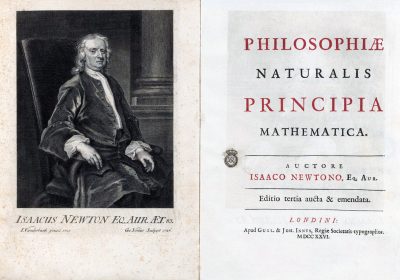 (翻譯內容以英文版本為準)
(翻譯內容以英文版本為準)
要解釋詞彙的真正意思,有時候非並易事,對於能懂幾種語文的人,要將一個語言的諺語,譯為另一語言,更是難上加難。
詞語在廣泛應用時賦予意義,當人說出這個字詞時便會直接連結到這個意思。
然而,有些詞彙本身由其歷史背景衍生出其本義。這些本義在廣泛使用,約定俗成之後被扭曲甚至遺忘。使用一個詞彙而忽略其本義,可說是極壞的罪惡(An egregious sin)。
「Egregious(壞極)」這個詞彙,正是一完美例子。所有英語國家,現在將之用作準知識分子型的侮辱,以看似較為友善的形式取代粗俗的字眼。「糟透了的文章」(An egregious article)形容一篇不值任何人一看的文章;「絕頂的錯誤」(An egregious mistake)則用來形容足以讓你後悔一輩子的錯誤。
然而,細看這個詞彙的拉丁文詞根,意思卻截然不同。其拉丁文詞根 grex,字面解作「羊群之外」,或更準確地解為「從羊群裡挑選」。
此字源於古代挑選活祭品的傳統。從羊群裡謹慎挑選最好的羊羔獻給諸神,因此羊必須要完美無瑕,並在羊群中突圍而出。
換句話說,grex 成為出色、傑出的代名詞,就如在羊群裡最好的羊羔,能輕鬆地在群體中受注視。
在一些語言中(如意大利語),甚至會用作正式場合的客套話,讚美別人與眾不同。然而,經歷數世紀的演進後,英語中的 Egregious 似乎顛覆了原本的意思,帶有負面的「突出」之意,聽上去就像只有符合於主流的才值得配受褒獎。
若「在羊群中出類拔萃」是對羅馬人最高的讚賞,那它現在就是對於英國人最差勁的侮辱。希望這個演進純屬巧合,而不是對於現代社會趨勢的反映:趨於集體思考而貶於獨立思考、倡於合群多於擅長區分與成就卓越的自己。顯而易見,我所希望的早已落空。無論如何,如此美好的字詞早已化成一種對人的羞辱,這明顯地是一個極糟糕的錯誤(An egregious mistake)。
An egregious vocabulary
To say what a word really means is sometimes a tricky task, and whoever speaks more than one language knows how frustrating the lack of certain idioms can be when translating from one to the other.
Words, in fact, have the meaning that comes from the way they are commonly used, the thing people have in mind when they say it.
But often words also mean something because of their history, and this can be warped or forgotten by common usage. To use a word ignoring its origin, however, is an egregious sin, clear especially to those who haven’t forgotten the etymology.
The word “egregious” itself is a perfect example. All English speaking countries now use it as a quasi-intellectual insult, an elegant way, it sometimes seems, to replace the f-word. “An egregious article” is one that no one should care to read. “An egregious mistake” is of the sort that will make you regret it forever.
The Latin root of this word, however, meant something very different. Ex+grege, the ablative of “grex”, literally means, “outside of the herd”, or, more accurately, “chosen from the herd”.
It comes from the ancient tradition or carefully choosing the best lamb of the flock to be sacrificed to the gods, which had to be flawless and spotless, and really “stick out” among the rest.
Figuratively, the word become the designation for anyone and anything that was excellent, eminent, which, like the best lamb of the herd, was the best in its field, to the extent that it could be noticed amongst the many with ease. For the flattering value that being called an uncommonly valuable, truly distinct person has, some languages, such as Italian, even use it as a courtesy title in formal situations.
But the meaning that we have given it in English over the centuries has completely perverted its original intention, with the result that now, to be “outstanding”, is only intended in the most negative way, as if there were no way that non/conformity could be praiseworthy.
If “to stick out of the herd” was the highest praise for the Romans, it is now the worst insult for the English.
I just hope that this evolution is just a coincidence, rather than a reflection of some modern tendency to favour groupthink over independent thought, and the urge to fit in overrules the one to excel and distinguish oneself, yet I fear such hope might be misplaced.
Either way, that we have let it happen that such a great word of praise has evolved into an insult in English, is a manifestly egregious mistake.















